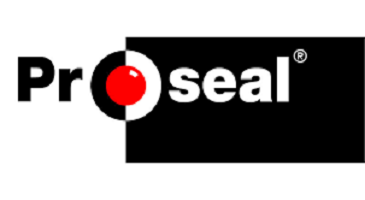
By Paul Bradley, Sr. Director of Product Marketing at TraceGains
Back in October, California Governor Gavin Newsom signed California House Bill 418 into law, also known as the California Food Safety Act, which places restrictions on the sale of foods containing four specific chemical additives: Brominated Vegetable Oil, Potassium Bromate, Propylparaben, and Red Dye No. 3. The passage of HB 418 marks the continuation of a controversial trend, wherein states are taking an increasingly prominent role in food safety regulation ahead of federal regulators.
The four newly restricted substances are fairly common food additives, each with a lengthy history in food manufacturing. The potential adverse effects of the additives vary but include concerns about potentially carcinogenic effects, association with neurological conditions, and other potentially negative health outcomes for consumers. A fifth additive, titanium dioxide, narrowly escaped inclusion in the final version of HB 418, having been removed at the last minute due to ongoing questions around its actual risk to consumers when used within industry guidelines.
Though supported by food safety and consumer advocacy groups, the bill has met sharp resistance from federal regulators and industry trade groups alike.
Beyond its potential economic impact, the passage of the act marks another instance of state regulation moving substantially ahead of regulation at the federal level. Manufacturers and industry trade associations have voiced concerns that the law moves food regulations in the US further away from a uniform regulatory framework under the FDA, and toward a fragmented model of disparate state regulations. In a statement, the National Confectioners Association (NCA) accused the state of California of making decisions “based on soundbites rather than science,” stating that the law “replaces a uniform national food safety system with a patchwork of inconsistent state requirements created by legislative fiat that will increase food costs.”
The controversy is reminiscent of ongoing discussions surrounding state-level restrictions on the usage of Per- and Polyfluorinated Substances (PFAS), often referred to as “forever chemicals.” Used for many years in food packaging products, PFAS are still allowed under certain circumstances by FDA regulations. However, multiple states in the US have issued, or are considering, far more restrictive regulations, including a complete ban instituted by the state of California. The two situations are not identical, but the effect on food brands and manufacturers is similar. In both instances, a lack of alignment between state and federal regulations puts brands on different timelines for reformulating products and adjusting supply chains depending on the state jurisdictions in which they operate and creates a more complex regulatory landscape for organizations to navigate.
Adding complication, opponents of HB 418 have pointed out that the legislative process by which the four substances were banned in California differs substantially from the various review and rule-making processes used by the FDA. Though complex, FDA regulatory structures and the processes under which they operate are typically well understood by regulatory professionals in the US, offering a degree of predictability as regulatory changes unfold over time. While the legislative process used in California took scientific testimony into account, the decision to ban the four substances was ultimately made by California state legislators, drawing criticism from industry organizations. As part of an ultimately successful campaign to exclude titanium dioxide from HB 418, the American Chemistry Association’s Titanium Dioxide Stewardship Council asserted in a statement that “HB 418 unnecessarily politicizes food additive safety determinations,” voicing a strong preference for existing methods of ongoing assessment and scientific review under FDA guidelines.
In a significant development, the FDA announced on November 2, 2023, that it is proposing to revoke the regulation authorizing the use of BVO in food. The FDA concluded that the intended use of BVO in food is no longer considered safe after the results of studies conducted in collaboration with the National Institutes of Health (NIH) found the potential for adverse health effects in humans. An effective date for the proposed change has not yet been set.
Many food brands and manufacturers are already moving toward alternative ingredients. However, doing so has challenges that go beyond retooling product recipes to use replacement ingredients. Replacement ingredients, if not already part of a manufacturer’s supply chain, need to be sourced. Qualified suppliers may need to be onboarded, with potential impacts on logistics and overall supply chain orchestration. Specifications may need to be developed along with new manufacturing protocols and plant-floor processes. Labeling impacts, both disruptive and often costly, will have to be addressed. While HB 418 does not go into effect until January 1, 2027, the impacts that some brands will have to absorb within that time frame may be significant.
The state of California does not appear to be stepping back from taking an increasingly active role as an ingredient safety regulator either. One day after the passage of HB 418, Governor Newsom signed a separate bill into law, expanding on California’s 2020 Toxic-Free Cosmetics Act by restricting the usage or sale of an extensive list of ingredients used in cosmetics manufacturing. While impacting a different industry, the impact on brands and manufacturers is similar and illustrates California’s willingness to continue to move farther and faster than federal regulators in restricting substances with potentially negative public health impacts.
In the near term, food industry brands and manufacturers will continue to face a volatile and increasingly complex regulatory compliance landscape in the United States, with divergent regulatory standards between the US and EU adding an additional layer of complexity. Awareness of the regulatory landscape across multiple jurisdictions, along with adaptable compliance management strategies, will likely become important priorities for many manufacturers moving into 2024.
Paul Bradley is head of product marketing at networked ingredients marketplace TraceGains. TraceGains helps companies like Nestle, Coca Cola, and Hello Fresh manage compliance in accordance with thousands of food safety regulations all over the world.

Credit: Source link















